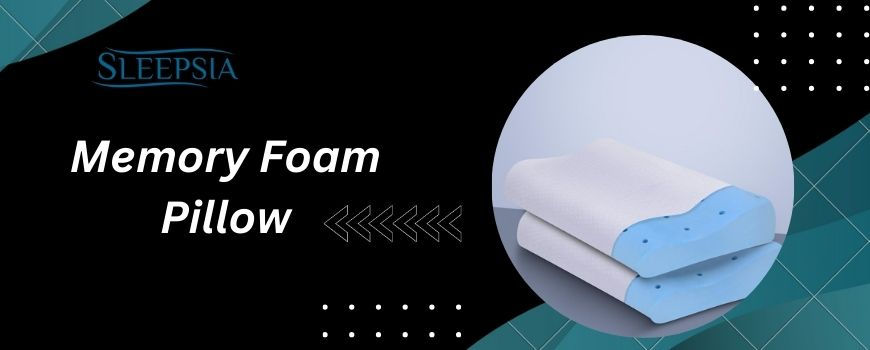What Is Neck Pain And How Can A Memory Foam Pillow Help?
- vishwakarmashivans9
- Mar 7, 2024
- 6 min read
Do you often wake up with a stiff neck or experience discomfort throughout the day? Neck pain is a common issue that can affect anyone, hindering daily activities and overall quality of life. But fear not! In this blog post, we'll dive into what causes neck pain and how a simple change, like switching to a memory foam pillow, can make a difference in alleviating your discomfort. Read on to discover how you can bid farewell to those nagging neck pains once and for all!

What is Neck Pain
Neck pain is a prevalent discomfort that can range from mild to severe, affecting the cervical spine and surrounding muscles. It can stem from various sources such as poor posture, muscle strain, injury, or underlying health conditions. The neck plays a crucial role in supporting the head's weight and enabling movement.
When the delicate balance of the neck is disrupted, it can lead to stiffness, soreness, limited range of motion, headaches, and even radiating pain down the arms. Chronic neck pain can significantly impact daily activities like driving, working on a computer, or simply turning your head.
Understanding the root cause of your neck pain is essential for effective management and relief. Whether it's due to poor ergonomics at work or sleeping on an unsupportive pillow - identifying triggers is key to finding solutions that work for you.
Causes of Neck Pain
Neck pain can be triggered by various factors, making it a common complaint among individuals. One of the primary causes of neck pain is poor posture. Slouching or hunching over devices for extended periods strains the neck muscles and joints.
Another culprit behind neck discomfort is muscle strain due to overuse or incorrect movements, such as sudden jerking motions during exercise or lifting heavy objects improperly.
Stress and tension can also manifest physically in the form of neck pain. When we are stressed, our muscles tend to tense up, leading to stiffness and discomfort in the neck area.
Injuries from accidents like whiplash can result in acute or chronic neck pain that requires proper treatment and care.
Additionally, underlying medical conditions like arthritis or herniated discs can contribute to persistent neck pain that may require professional intervention for management and relief.
The Benefits of Using a Memory Foam Pillow

If you're someone who struggles with neck pain, investing in a memory foam pillow could be a game-changer for your sleep quality and overall comfort.
Memory foam pillows are designed to contour to the shape of your head and neck, providing optimal support throughout the night. This can help alleviate pressure points and promote proper spinal alignment, reducing the likelihood of waking up with stiffness or soreness in the morning.
One of the key benefits of using a memory foam pillow is its ability to adapt to your unique sleeping position. Whether you're a back, side, or stomach sleeper, a memory foam pillow will mold to fit your needs and keep your neck properly supported as you rest.
Additionally, memory foam pillows are known for their durability and longevity. Unlike traditional pillows that can lose their shape over time, a high-quality memory foam pillow will retain its supportive properties for years to come.
How Memory Foam Pillows Help with Neck Pain
Memory foam pillows are designed to provide optimal support and alignment for your neck while you sleep. The memory foam material adjusts to the contours of your head and neck, relieving pressure points that can cause discomfort and pain. By promoting proper spinal alignment, these pillows help reduce strain on the muscles in your neck and shoulders.
The firm yet cushioning properties of memory foam help keep your head and neck in a neutral position throughout the night, preventing awkward angles that can lead to stiffness or soreness upon waking. Unlike traditional pillows that may lose shape over time, memory foam maintains its supportive structure for longer-lasting relief from neck pain.
Memory foam pillows also offer temperature-sensitive qualities, molding to your body heat for customized comfort. This adaptable feature ensures consistent support all night long, allowing you to wake up feeling refreshed without any lingering neck discomfort. So if you're looking for a solution to alleviate neck pain and improve overall sleep quality, consider investing in a quality memory foam pillow tailored to your specific needs.
Tips for Choosing the Right Memory Foam Pillow
When it comes to choosing the right memory foam pillow for neck pain relief, there are a few key factors to consider. First, think about your sleeping position. Side sleepers may benefit from a firmer pillow to keep their spine aligned, while back or stomach sleepers might prefer a softer option.
Consider the thickness of the pillow as well. A thicker pillow can provide more support for those with broader shoulders, while a thinner one may be better suited for those with narrower frames.
Look for pillows with cooling properties if you tend to get hot during the night. Memory foam pillows infused with gel or copper can help regulate temperature and keep you comfortable throughout the night.
Don't forget about pillow covers! Opt for hypoallergenic and breathable materials to ensure a clean and healthy sleep environment. By taking these tips into account, you can find the perfect memory foam pillow to alleviate your neck pain and improve your quality of sleep.
Other Tips for Managing Neck Pain
Aside from using a memory foam pillow, other strategies can help manage neck pain effectively. One key tip is to practice proper posture throughout the day, whether sitting at your desk or standing. Maintaining good posture helps reduce strain on your neck muscles and prevents unnecessary pain.
Regular stretching exercises can also play a vital role in preventing and alleviating neck discomfort. Simple stretches like shoulder rolls, neck rotations, and gentle stretches for the upper back can help loosen tight muscles and improve flexibility.
Another useful tip is to stay hydrated by drinking an adequate amount of water daily. Proper hydration supports overall muscle health, including those in the neck area. Additionally, incorporating stress-relief techniques such as mindfulness meditation or yoga into your routine can help relax tense muscles in the neck and shoulders.
Be mindful of ergonomics in your workspace setup. Adjusting your computer monitor height, chair position, and keyboard placement to promote neutral spine alignment can significantly reduce strain on your neck muscles throughout the day.
Conclusion
As we wrap up this discussion on neck pain and the benefits of memory foam pillows, it's important to remember that finding relief from neck discomfort is a journey. By understanding the causes of neck pain and how memory foam pillows can help alleviate it, you're taking proactive steps toward improving your quality of life.
Choosing the right memory foam pillow tailored to your specific needs is crucial in managing neck pain effectively. Remember to consider factors like pillow size, shape, and firmness to ensure optimal support for your neck and spine alignment.
In addition to using a memory foam pillow, incorporating other strategies such as maintaining good posture, staying active with regular exercise, and practicing relaxation techniques can also contribute to reducing neck pain over time.
By prioritizing self-care practices and investing in supportive sleep accessories like memory foam pillows, you are actively investing in your overall well-being. Stay informed, listen to your body's signals, and make choices that promote comfort and health when dealing with neck pain.
FAQs
Can a memory foam pillow eliminate neck pain?
While a memory foam pillow can significantly help reduce neck pain by providing proper support and alignment, individual results may vary. It's essential to combine the use of a quality pillow with other lifestyle adjustments for comprehensive neck pain management.
How long does it take for a memory foam pillow to show results in reducing neck pain?
Results may vary depending on the severity of your neck pain and how well you adjust to using a memory foam pillow. Some individuals experience relief almost immediately, while others may take some time to adapt. Consistent use and proper positioning are key factors in seeing improvement.
Are memory foam pillows suitable for all sleeping positions?
Yes, one of the benefits of memory foam pillows is their versatility in accommodating different sleeping positions. Whether you sleep on your back, side, or stomach, there are specific contour designs available that can provide the necessary support for each position.
Should I consult a healthcare professional before switching to a memory foam pillow?
If you have chronic or severe neck pain issues, it's always advisable to consult with a healthcare professional before making any changes to your bedding or sleep habits. They can offer personalized recommendations based on your specific condition and needs.
Remember that while using a memory foam pillow can be beneficial in managing neck pain, holistic approaches such as maintaining good posture during the day, regular exercise, and staying hydrated also play crucial roles in overall musculoskeletal health. By combining these strategies with the right choice of pillow tailored to your needs and preferences, you can effectively address and alleviate neck pain for better quality sleep and improved well-being.



Comments